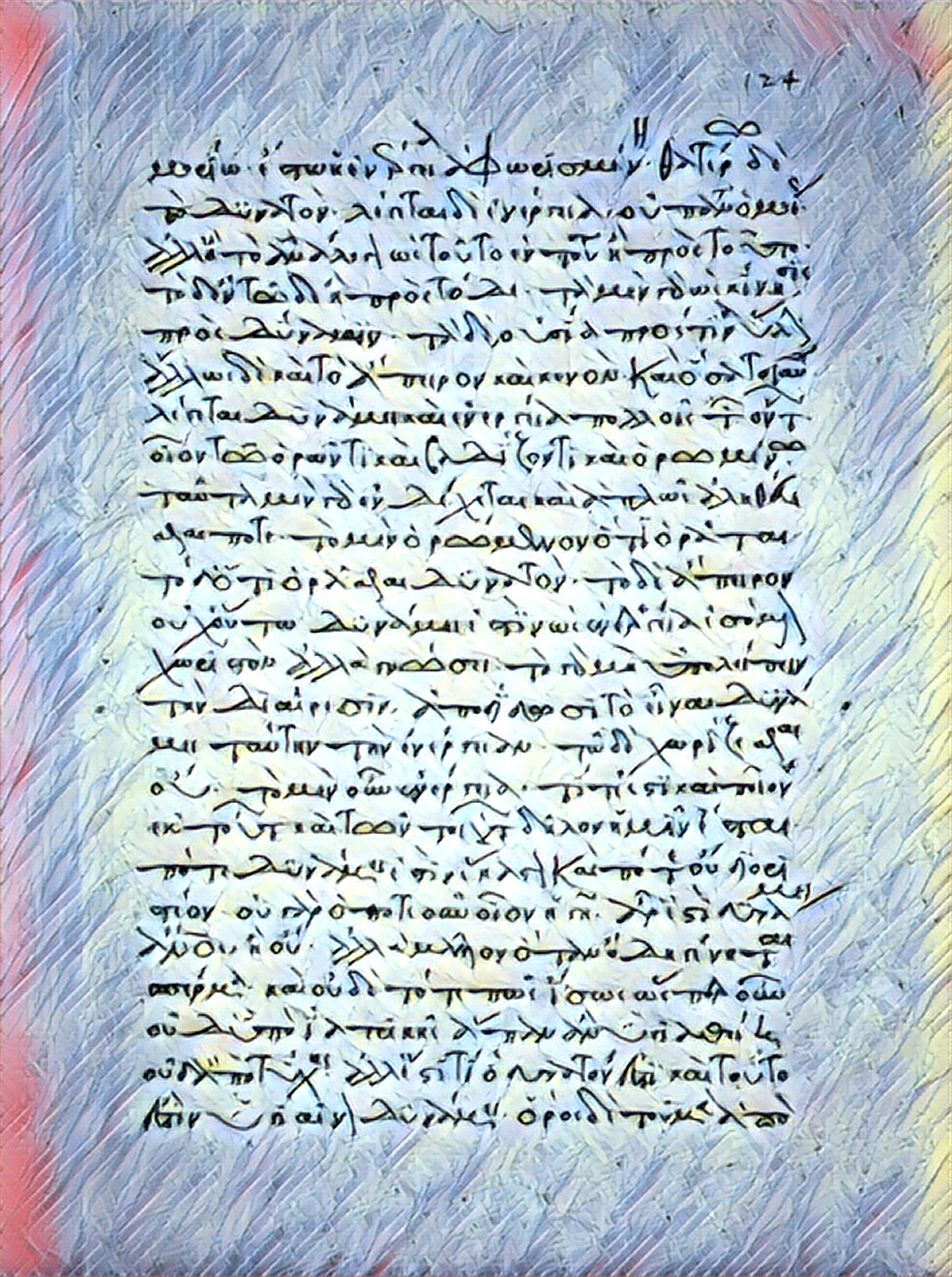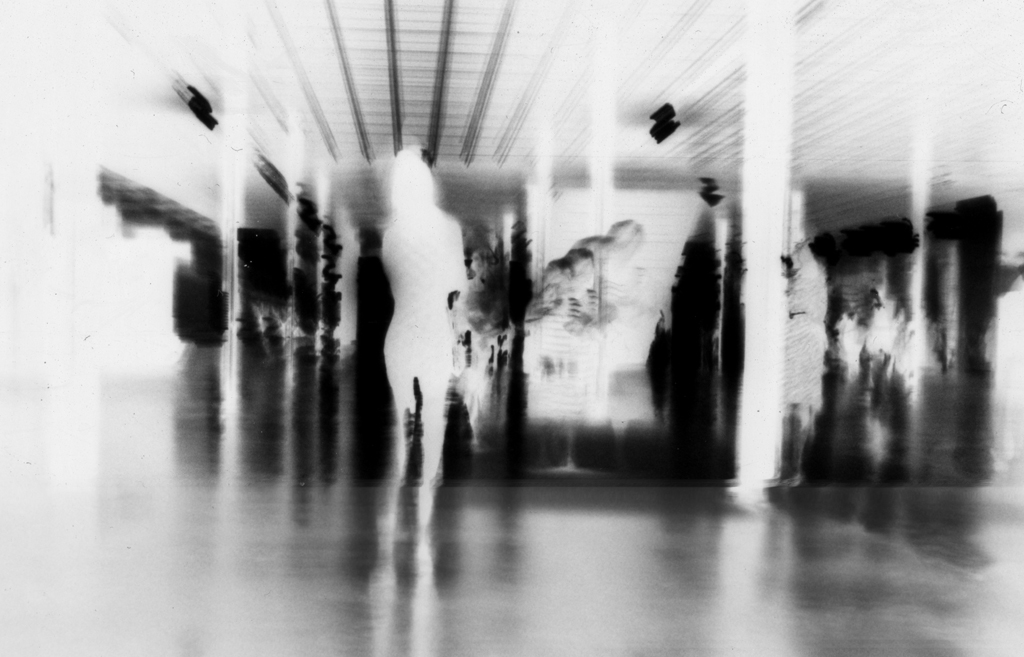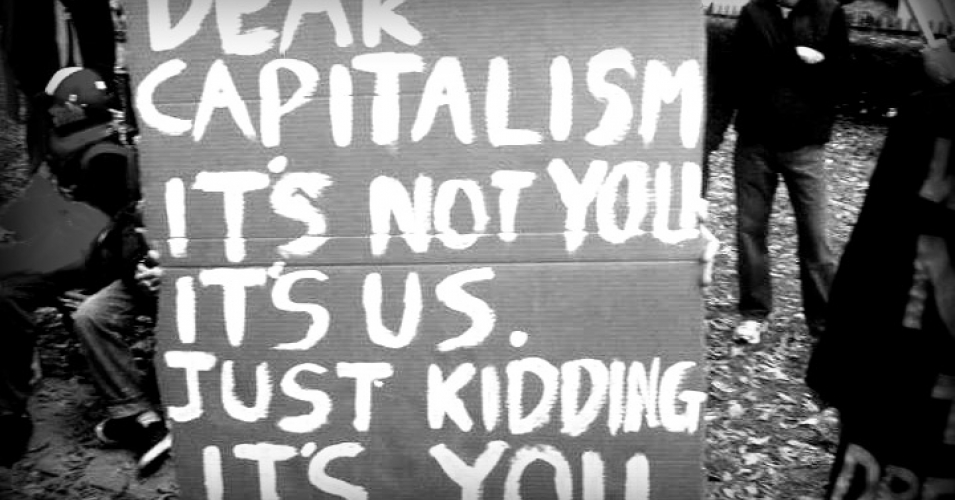A Turkish translation of a version of this essay has been published as “Bir, bir şey değildir: post-metafizik düşüncede birlik ve çokluğun akıbeti,” trans. Mustafa Yalçınkaya, Sabah Ülkesi: Üç aylık kültür-sanat ve felsefe dergisi, no. 51, Nisan 2017, 16–19. Available online at http://www.sabahulkesi.com/sayi.php?no=51, retrieved 27 April 2017. The themes of this essay are discussed in more detail, with a special focus on Heidegger, in Jussi Backman, Complicated Presence: Heidegger and the Postmetaphysical Unity of Being (Albany, NY: State University of New York Press, 2015).
Metaphysics as a Quest for Unity
In an important sense, the entire Western philosophical tradition—the tradition of Islamic Aristotelianism included—has been about unity.
Unity, Hegel maintains, is the “content” and the “result” that connects modern philosophy to its ancient beginnings.[1] At the origins of Greek philosophy, in the famous turn from mythos to logos, we discover a new attempt to consider all beings, all of reality, as one, in terms of a common denominator or a unifying point of reference. Thales of Miletus, who since ancient times was regarded as the first philosopher, was supposedly the first to seek a single principle for all things (for him, water).
Anaximander, said to have been his pupil, saw an indeterminate (apeiron) unity as the origin of differentiated and determinate beings. For Parmenides of Elea, the discursively articulated binary oppositions and differences of the everyday world of the “mortals” are reducible to being as such in the sense of the pure and indivisible intelligibility of all things. For Heraclitus of Ephesus, it is discursive and linguistic articulation, logos itself, that in differentiating opposites (night and day, war and peace, freedom and slavery) also makes them conceptually dependent on each other and thus ties them together as one.
In the Platonic and Aristotelian hierarchical or “ontotheological” metaphysical models, the question concerning the unity of being becomes a matter of determining the supreme and perfect instance of being to which all inferior instances refer. In Plato’s Republic, this is the Idea of the Good as the Idea of Ideality as such, presupposed by all other Ideas. In Aristotle’s Metaphysics, it is the metaphysical divinity (theos) as pure actuality, as an absolute and indivisible self-awareness, that provides the ontological ideal or “final cause” for all other entities.
This model, identified by Martin Heidegger as the cornerstone of Western metaphysics as a whole, decisively informed the entire later tradition. Through the mediation of Neoplatonic metaphysics, which conceived the different levels of being as a series of emanations from an original, absolute, and ineffable unity, the Aristotelian God of metaphysics became assimilated, in medieval Islamic and Christian philosophy, with the God of monotheism as the creator of all things. For modern metaphysics since Descartes, the unifying Archimedean point of reality was gradually shifted from divine transcendence into the immanence and immediacy of self-conscious subjectivity—the Cartesian cogito ergo sum. This metaphysics of the unifying subject is manifested by the Leibnizian monadology, the Kantian unity of transcendental apperception, and, finally, by Hegelian absolute idealism in its attempt to think the “substance” of reality as subjectivity.
The Late Modern Disintegration of Metaphysical Unities
However, while the German idealists still took for granted the conception of philosophy as a quest for ultimate unity, in philosophical late modernity since Nietzsche—separated from Hegel by what Reiner Schürmann calls “the most difficult decades to understand in our entire history”[2]—the status of unity becomes profoundly unsettled and transformed. In one of his late fragments, Nietzsche exclaims that “the overall character of existence may not be interpreted by means of the concept of ‘aim,’ the concept of ‘unity,’ or the concept of ‘truth.’ . . . [A]ny comprehensive unity in the plurality of occurrences is lacking.”[3]
The category of unity is one that we “used to insert some value into the world,” but with the advent of modern nihilism and its “devaluation of the supreme values,” this category is once again extracted. Like all other values, unity was no more than a temporary instrumental projection. “We need ‘unities’ in order to be able to reckon [rechnen]: that does not mean we must suppose that there are such unities.”[4] For Nietzsche, reality is a chaotic plurality without inherent unity, aim, or structure, ceaselessly rearticulated by the will to power as the essence of subjectivity. This unending and aimless process  of ceaseless reconfiguration is the only permanent identity, the cyclic “eternal recurrence of the same.”
of ceaseless reconfiguration is the only permanent identity, the cyclic “eternal recurrence of the same.”
For Heidegger, Nietzsche’s metaphysics of the will to power represents the final stage, completion, and closure of the modern metaphysics of subjectivity—and, in this sense, the “end” of the Western metaphysical tradition as a whole. In Nietzsche, the principal hierarchies of Platonic metaphysics are inverted: being is subordinated to becoming, ideality to sensuousness, truth to art—and unity to multiplicity. For post-Nietzschean thought, an ultimate unity of being, situated in a supreme substance or a fundamental, constitutive subjectivity, became a chimera. The philosophical hermeneutics, poststructuralism, empiricism, and naturalism of the twentieth century all came to a harmonious agreement in their rejection of any foundational metaphysics of unity and identity.
In a 1963 paper, W. V. O. Quine notes—very much in tune with Nietzsche—that systematic virtues such as simplicity and coherence are to be perceived as values intrinsic to theoretical “beauty and convenience”; no metaphysical principle of “unity of nature” follows from the quest for unity in the field of science and theory.[5] In the French crazy year 1968, we hear Jacques Derrida’s diagnosis of différance—of the endless referentiality of meaning and the endless deferral of the referent—as “what is most irreducible about our ‘epoch’,”[6] as well as Gilles Deleuze’s more Nietzschean declaration that (late) modern thought is born out of the loss of the traditional metaphysical identities of the substance and of the subject, which are now being referred back to a “more profound game of difference and repetition.”[7]
It is in Heidegger that we find the prototypical postmetaphysical rearticulation of the metaphysical quest for ultimate unity. In the fragmentary main work of his middle period, Contributions to Philosophy (1936–38), Heidegger notes that because the Presocratic thinkers focused on being (Sein) as the pure intelligibility and accessibility of things, they inevitably came to regard being as that which unifies everything that is intelligible and accessible. However, in the forthcoming postmetaphysical “other beginning” of Western thinking foreshadowed by Heidegger, this unity of meaningful presence is to be referred back to an underlying temporal structure.[8] In several of his deconstructive readings of Heidegger, Derrida draws attention to the presence of a certain discourse of unity and “gathering” (Versammlung) in the Heideggerian opus itself.[9]
To be sure, we find in Heidegger’s Being and Time, for example, a concern with working out the unity and coherence of the structure of human existence, Dasein. This unity, however, is not that of a self-identical substance, but rather the “ecstatic”—dynamic, contextual, and heterogeneous—unity of existence in a singular meaningful situation in which the different dimensions of existential temporality intertwine. A similar structure can be found in the later Heidegger’s enigmatic figure of the fourfold (Geviert), in which the meaningful presence of a simple thing, such as a jug, is seen as the focal point of convergence or as a “onefold” of four background dimensions of meaningfulness (which Heidegger evocatively names divinities, mortals, sky, and earth).
For Heideggerian postmetaphysics, the unity of being is no longer a universal and comprehensive point of reference but rather a local, singular, and situated unity of an event (Ereignis) of meaning, embedded in a multidimensional meaning-context. As Heideggerian thinkers such as Schürmann, Gianni Vattimo, and Jean-Luc Nancy have emphasized, Heidegger’s heritage consists in a “constitutive” disintegration of foundational unities and hegemonic metaphysical principles in favor of an “anarchic” embracement of difference and singularity.
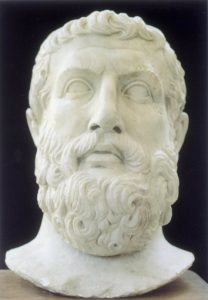
Local, heterogeneous unities, understood as dynamic effects rather than as monolithic and static foundations; temporary and renegotiable identities rather than permanent ideal essences; situated micronarratives rather than all-encompassing metanarratives; context-sensitivity rather than absolute self-sufficiency; referentiality rather than fundamentality; singularity rather than universality—these are the signs of our philosophical times, the hallmarks of what, since Jean-François Lyotard’s 1979 book, has prematurely been labeled “postmodern” thought. As is well known, however, increasing distrust in the Western Enlightenment’s “master narratives” of historical progress has gone hand in hand with a cynicism regarding its universalistic emancipatory projects, the credibility of which depends on the acceptance of certain unifying aims. The loss of universal teleology would leave us with nothing but undecidable differends between incommensurable language games.
Badiou – Platonism of the Multiple
During the past few decades, Alain Badiou’s highly original approach to this predicament has emerged as the perhaps most engaging contemporary philosophy of unity and multiplicity. Badiou’s diagnosis of the late modern intellectual and ideological situation is twofold. On the one hand, Badiou welcomes the late modern demise of ultimate unities and the entry of contemporary thought “into a new phase of the doctrine of truth, that of the multiple-without-One.”[10] He agrees that the core of Western ontology since Parmenides has always been the dialectic of the one and the many, and in this sense, ontology is mathematics, a formal study of the structures of unity and multiplicity.
This has only become evident with the advent of modern set theory, particularly in its axiomatic version which prohibits the existence of a universal set, a set of all sets. For Badiou, this amounts to nothing less than the radical ontological hypothesis that there is no ultimate unity, either in the sense of a comprehensive totality or in the sense of fundamental indivisible “atoms” (since the elements of any set can in themselves be conceived as multiplicities). That “the One is not” is the fundamental “decision” of Badiou’s own, “subtractive” ontology, worked out in his magisterial Being and Event (1988): being as such is pure inconsistent multiplicity, which is only conceivable in negative terms, as reality minus all unifying structure.[11]
As philosophy has always known, all thinking requires structure, an operation of “count-as-one” in which the fundamental void multiplicity of being becomes articulated into a “situation” or “world” of coherent intelligibility. Western philosophy’s focus on intelligibility and discursive meaning, together with its failure to grasp the ontological power of formal mathematics, has prevented it from accepting the ultimate lack of unity that, for Badiou, is the true sense of all progressive materialist thought. This incapacity is visible even in the concentration on experience and language in contemporary phenomenological, hermeneutic, and poststructuralist approaches.
On the other hand, Badiou, whose philosophical project is deeply motivated by his commitment to progressive emancipatory politics, is dissatisfied with the ideological outcome of late modernity—“democratic materialism,” a cynical and relativistic ideology for which there are no universal truths, only languages and bodies. To rehabilitate, against the postmetaphysical “Great Sophistry” of “antiphilosophers” such as Nietzsche, Heidegger, and Wittgenstein, a Platonic commitment to universal truths that are potentially time-defying and accessible to everyone, but without thereby taking recourse to the transcendent unity of the Platonic Ideas, is the basic aim of what Badiou characterizes as his “Platonism of the multiple.”[12]
However, truths, for Badiou, are not veridical statements, nor are they disclosures of meaningful presence—they are infinite sets that are gradually constructed by progressive political, scientific, artistic, or amorous “truth-procedures.” These truth-constructing processes have a beginning in time—they start from the recognition of a subversive historical event, such as a political or artistic revolution, a scientific breakthrough, or falling in love, and begin to articulate existing historical reality anew in terms of that event.
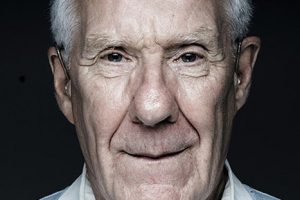
For example, modern emancipatory revolutionary politics starts from the event of the French Revolution of 1789 and amounts to a transformative process of carving out an entirely new category, a revolutionary truth guided by the idea of the equality of all humans—an idea that makes no sense at all in the prerevolutionary political and social reality. Along with the concept of unifying universal truths, Badiou’s ontology rehabilitates the concept of a unified subject, but not in the sense of the Cartesian individual ego: the “subject” of revolutionary politics is the collective body unified by the commitment of its members to the revolutionary egalitarian idea and to the construction of a new, revolutionary truth. While being as such remains a void material multiplicity, the highest ethical calling of the human being, the source of meaningfulness in human existence, is to unite with others into collective subjectivities for the purpose of creating unities, for producing new sets of coherence in which new discourses will be meaningful and veridical.
While Badiou’s project remains extremely complex, not least because of its intricate formal apparatus, and also inherently problematic because of its seeming historical naïvetés (the four supposedly timeless truth-procedures named by Badiou—politics, science, art, and love—are all more or less modern and Western concepts), it captures and addresses, with unique intellectual ambition, a fundamental dilemma of postmetaphysical philosophy.
While we tend to be increasingly suspicious of the unifying hegemonic principles of traditional metaphysics, such as ideal truth and unified subjectivity, we are even less inclined to accept the loss of unifying, universal, and potentially infinite aims and projects. Borrowing Nietzsche’s words, we seem to need art, the production of meaning and coherence, in order not to perish from the truth—that is, from the void of pure multiplicity that has become the late modern “truth of being.”[13]
Jussi Backman is a senior researcher in philosophy at the University of Jyväskylä, Finland. He is the author of Complicated Presence: Heidegger and the Postmetaphysical Unity of Being (State University of New York Press, 2015) as well as numerous articles on contemporary continental philosophy and ancient philosophy.
________________________________________________________________________________________________
[1] G. W. F. Hegel, Vorlesungen: Ausgewählte Nachschriften und Manuskripte, vol. 7: Vorlesungen über die Geschichte der Philosophie, vol. 2: Griechische Philosophie, 1: Thales bis Kyniker [1825–26], ed. Pierre Garniron und Walter Jaeschke (Hamburg: Meiner, 1989), 52–54; Lectures on the History of Philosophy 1825–6, vol. 2: Greek Philosophy, ed. and trans. Robert F. Brown (Oxford: Oxford University Press, 2006), 57–58.
[2] Reiner Schürmann, Des hégémonies brisées (Mauvezin: Trans-Europ-Repress, 1996), 641; Broken Hegemonies, trans. Reginald Lilly (Bloomington, IN: Indiana University Press, 2003), 513.
[3] Friedrich Nietzsche, “Aus dem Nachlaß der Achtzigerjahre” [1884–88], in Werke in drei Bänden, vol. 3, ed. Karl Schlechta (München: Hanser, 1956), 678 (Der Wille zur Macht n. 12); The Will to Power, trans. Walter Kaufmann and R. J. Hollingdale (New York: Vintage Books, 1968), 13. (Tr. mod.)
[4] Nietzsche, “Aus dem Nachlaß der Achtzigerjahre,” 777 (Der Wille zur Macht n. 635); The Will to Power, 338. (Tr. mod.)
[5] W. V. O. Quine, “On Simple Theories of a Complex World,” Synthese 15:1 (1963): 103.
[6] Jacques Derrida, Marges de la philosophie (Paris: Minuit, 1972), 7; Margins of Philosophy, trans. Alan Bass (Brighton: Harvester Press, 1982), 7. (Tr. mod.)
[7] Gilles Deleuze, Différence et répétition [1968], 11th ed. (Paris: Presses Universitaires de France, 2005), 1; Difference and Repetition, trans. Paul Patton (New York: Columbia University Press, 1994), xix.
[8] Martin Heidegger, Gesamtausgabe, vol. 65: Beiträge zur Philosophie (Vom Ereignis), ed. Friedrich-Wilhelm von Herrmann (Frankfurt am Main: Klostermann, 1989), 459–60; Contributions to Philosophy (Of the Event), trans. Richard Rojcewicz and Daniela Vallega-Neu (Bloomington, IN: Indiana University Press, 2012), 361–62.
[9] See, e.g., Jacques Derrida, Psyché: inventions de l’autre (Paris: Galilée, 1987), 439; “Geschlecht II: Heidegger’s Hand,” trans. John P. Leavey, Jr., in Deconstruction and Philosophy: The Texts of Jacques Derrida, ed. John Sallis (Chicago: University of Chicago Press, 1987), 182.
[10] Alain Badiou, Manifeste pour la philosophie (Paris: Seuil, 1989), 39; Manifesto for Philosophy, trans. Norman Madarasz (Albany, NY: State University of New York Press, 1999), 58.
[11] Alain Badiou, L’être et l’événement (Paris: Seuil, 1988), 31–39; Being and Event, trans. Oliver Feltham (London: Continuum, 2005), 23–30.
[12] Badiou, Manifeste pour la philosophie, 85; Manifesto for Philosophy, 103.
[13] Nietzsche, “Aus dem Nachlaß der Achtzigerjahre,” 831 (Der Wille zur Macht n. 822); The Will to Power, 435.
